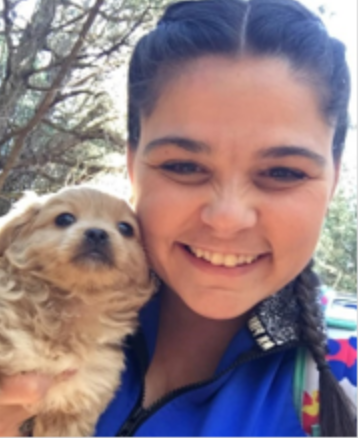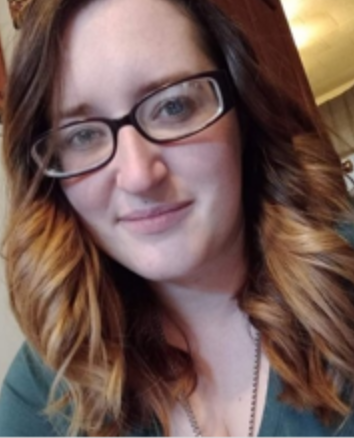
Kyle Plymesser, Youth Peer Supporter
Kyle was removed from his biological family and placed in foster care at the age of two. He bounced through several foster homes and orphanages until finally
being adopted at age seven. Naturally, he had quite a bit of difficulty adjusting after being placed in several different homes for most of his childhood.
Not knowing how to deal with these feelings, he resorted to various misbehaviors, and as a teenager, he often found himself in facilities for delinquent adolescents.
This is how he would spend the remainder of his youth. Patterns of his unresolved trauma remained in adulthood, and he eventually found himself looking at the bars of a prison cell more than once, before committing to changing his life.
When his now wife, Tara, started working at the Adams County Health Department as a peer supporter, he was inspired by the change she was making in the lives of individuals with substance use disorder.
"I wanted to work with youth because I know what they're going through, and I can relate. If we can get ahead of their problems, we can save them. They didn't ask for any of their problems, sometimes they're just dealt a bad hand. This is what I feel my purpose is - to be someone they can depend on." – Kyle

Samantha Campbell, Youth Peer Supporter
When Samantha was two, her father went to prison. When she was eight, she was removed from her mother's care due to conduct in the home. While she was awaiting
her grandmother to adopt her, she was housed in the Wilson Children's Home. At the age of 21, Samantha had a major surgery. To help with the pain, her doctor
prescribed her opiates – this is what started her addiction to medication. When she no longer had access to prescription painkillers, she was introduced to
heroin. She was hooked. She went from heroin to meth and graduated to using them together over six years.
Her mother and sister reached out to the Adams County Health Department for help, and Samantha was put on Vivitrol, an injectable that blocks the effects of opioids. Vivitrol exasperated some of her health problems, and she discontinued use.
Samantha stayed clean for three years – until doctors gave her IV Dilaudid after being admitted to the hospital. She relapsed for four weeks. During that time, her mother started going to church. Samantha started going with her – and she was saved.
This led to her starting her journey as a peer supporter.
"I'm excited to be with the kids - I relate to them. I've been through a lot, and I feel I can help them through any problem they may have. I love being able to show them that they can [be successful too]." – Samantha

Shayla Tumbleson, Adult Peer Supporter
In 2018, Shayla went through a divorce. This is where her addiction began after she befriended an individual in active addiction. After a year, Shayla entered
a relationship with her dealer.
One day, they were pulled over by law enforcement, and arrested. Her child was taken from her. Shayla attempted rehabilitation twice, and on the third time, after realizing she was pregnant, completed the program; however, after giving birth to her second child, the baby tested positive for substances and was taken.
This broke her, and she temporarily relapsed.
She started counseling at the Adams County Health Department, and this is where she met Tara. Everything changed for her. Tara made her realize her potential, encouraged her, and started her journey to peer support with the help of OhioMeansJobs. Shayla regained her independence and happiness. She realized she was not alone.
"I love being able to help other people and make a difference like Tara made in my life. I struggled with God when I first got clean. Tara was like my higher power – God was working through her to get to me. I knew I wanted to be what Tara was, and now, I work beside her. I wouldn't be here if not for her." – Shayla

Brandon Perry, Adult Peer Supporter
Brandon has a history of childhood trauma, and as a teenager, he fell into the wrong crowd for acceptance. With that crowd, came substance use.
At 15, he became addicted. He was given a choice to complete a rehabilitation program or be expelled at 16. He chose to go to the Christ Hospital Adolescent Chemical Dependency Unit. He mostly did it for his mother, uncertain of what he wanted to do with this life. After completing rehabilitation, he graduated with honors.
After graduation, he went to work in a manufacturing facility. His coworkers were avid partiers, which caused Brandon to fall back into old habits. He started drinking heavily, and after an accident at a get-together, he was prescribed opiates.
He was instantly addicted.
After the seven-day prescription, he experienced withdrawals and started seeking alternatives through his coworkers. When that supply dried up, he turned to heroin. He was on heroin for five years.
At his worst in active addiction, he didn't want to live anymore. That is when he had a vision of himself in a casket. He knew he needed to change.
He checked himself into rehab and then moved to Adams County. He signed up for outpatient services through The Counseling Center, connected with Church180 and Celebrate Recovery, and built a support system.
He was six years into his recovery before he decided to work in a field involving substance use disorder. He went to church with the Director of Behavioral Health at the Adams County Health Department, and she invited him to become a peer supporter.
Brandon knows what it meant to him in his recovery to have support, and he knows what it can mean for someone else.
"I love seeing people succeed. I love seeing that moment when people realize there's a different way to live, and knowing I can be a small part of that change." – Brandon
